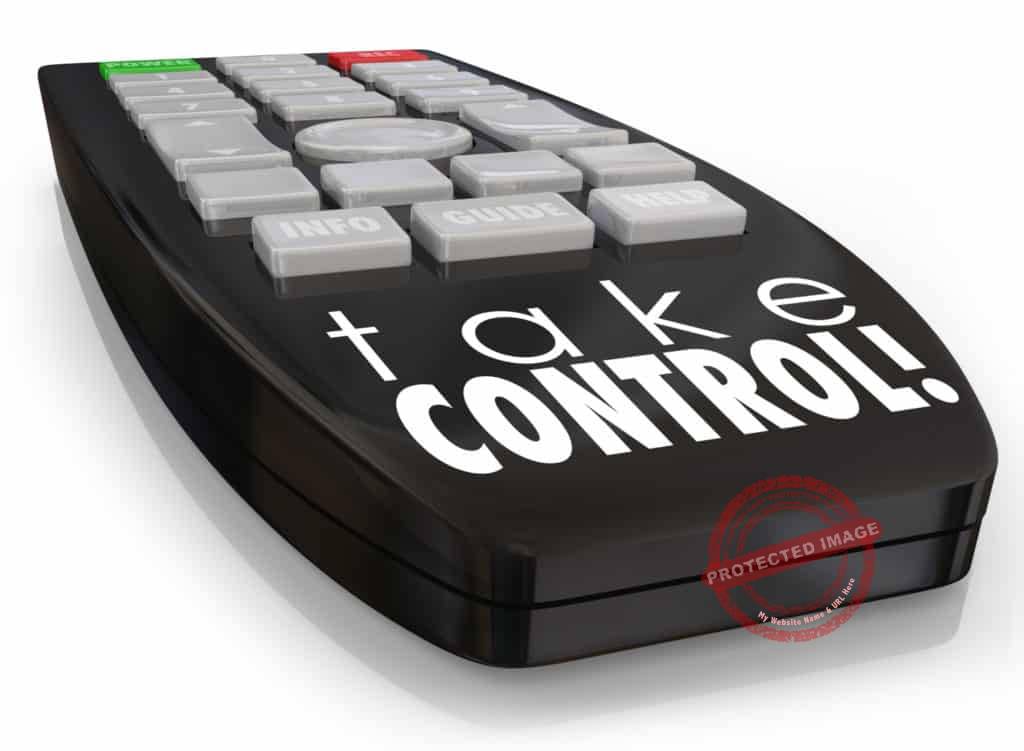Is your business partner impossible to work with? Are you unable to make business decisions, work on your business strategy and run your business because you are unable to reach a compromise with your business partner? Are there workable ways on how to deal with difficult business partners? Yes, there are!
Forming a business partnership is an effective strategy to be more competitive in the market.
Unfortunately, people who need to work together aren’t always on good terms.
Clashing personalities, conflicting values, and different goals can destroy the progress between business partners.
Learn how to work with or deal with a difficult business partner before it’s too late.
Rules Of Partnership In Business

The harmony and long life of business partnerships rely on clear-cut rules and stipulations.
A legal partnership agreement or a partnership contract is a document that outlines all the important aspects of doing business together.
It includes each partner’s duties, liabilities, and percentage profit, among other relevant information.
Every partnership contract is laid out according to the partnership rules in business, and the following are its basic elements:
Name Of The Partnership
The name of the partnership must be registered with the concerned legal authorities.
All documents related to the partnership should use a unique and consistent name.
Roles

A legal partnership agreement helps define an individual’s extent of involvement in the business.
It delegates which party is authorized to make decisions on behalf of the company.
All partners are expected to stay within the limits of their authority.
There are two kinds of partners: the general partner and the limited partner.
A general partner is deeply involved in daily business transactions.
This person controls all managerial and financial matters, but he also incurs unlimited liabilities within the business.
The limited partner merely invests money in the partnership.
Her liabilities don’t go beyond her shares in the business.
However, she doesn’t have a voice when it comes to decision-making.
That’s why the limited partner is also referred to as the “silent partner”.
Capital And Investment
Partners in business contribute their individual assets in order to raise capital.
The amount and type of investment offered in a partnership must be written in the agreement.
This determines how much a partner can take out of the business if he wants to withdraw from the partnership.
Profits And Losses

Unlike regular employees, partners don’t receive a salary.
Instead, they get a share of the business’ profits, which is determined by the percentage of their investment.
Partners are also open to losses if the business doesn’t perform well.
However, there’s a limit to the value of deficit /loss that each of them absorbs in an economic year.
Like profits, business losses are also distributed respectively based on the number of shares a partner puts into the company.
Dispute Resolution
Partners don’t always see eye to eye, thereby leading to a dispute.
To resolve disagreements, it’s highly recommended to have a mediation clause in the partnership agreement.
The resolution process should be as objective as possible.
Voting is perhaps the simplest way to determine a course of action.
This is a good way to deal with issues involving difficult business partners.
Survivorship

In case a partner dies unexpectedly, it should be clear in the partnership agreement where his shares will go.
Will it be transferred to the remaining partners, or given to a surviving relative?
This bit of information should also be present in each partner’s personal estate documents.
You must bear in mind that the continuity of the company depends on this.
The entry of an unfamiliar shareholder may complicate the established processes within the business.
A written agreement notes all the details of a partnership, but what’s spelled out on paper won’t always translate in real life.
There’s always a human aspect in every business relationship.
Even with a good contract in place, you may encounter a business partner who is difficult to deal with—and this puts greater emphasis on the importance of knowing how to work with a difficult partner.
Signs Of A Bad Business Partner

The thing about relationships is that everything seems to go well at first.
But, as time goes by, people’s true colors unfold before your eyes.
You may realize that your first impressions about them were wrong.
Your trust and respect for each other might even begin to drop.
The same thing can happen in a business partnership.
You can’t really say that someone is a bad business partner until you get to know them better.
There are times, however, when your instincts tell you that a person is not trustworthy the moment you meet them.
Red flags can be spotted instantly or revealed through time.
Here are some of the telling signs of a bad business partner:
Gives Unrealistic Promises

A potential business partner may misrepresent himself as someone with skill or authority, who is very interested in working with you.
He will entice you with incredible promises, such as tripling your investment.
But, after receiving your money, you don’t hear from him again.
Many people have been victimized by fraudulent schemes like this.
If it sounds too easy, there’s a good chance that it’s a scam.
Unwilling To Sign A Partnership Agreement

The importance of a partnership agreement can’t be stressed enough.
It is a binding document that shows commitment to the business.
A partner who refuses to sign a contract may not be as dedicated to the partnership as she should be.
Has Ulterior Motives
Everyone has a personal agenda, and that’s just part of the business.
What you need to be wary of are hidden and ill-minded motives that can destroy the partnership.
Your partner should be rooting for your collective success, not just his own.
A background check will show if he has other ventures that may be in conflict with your business’ interest.
Unable To Match What You Bring To The Table

The collection of investments is just one aspect of a partnership.
Aside from material resources, you also bring together each other’s expertise and experience.
It’s good to partner with someone who has the skills that you lack.
Partners in business must complement each other, and work together to fill each other’s weaknesses.
You and your partner should have a balanced contribution to the business, so both of you will benefit equally from it.
In a perfect partnership, you will not just gain profits but professional development as well.
An unbalanced partnership, on the other hand, will only benefit one party, thus producing a toxic professional relationship.
Has Conflicting Values

If your values and thoughts are not compatible with those of your partner, it would be virtually impossible to agree on anything.
This is another crucial aspect when it comes to dealing with difficult business partners.
Your goals and the means to achieve them should be aligned.
It’s easier to plan and strategize with a partner who has similar ideals and work ethic.
Unreceptive To New Ideas
There are people who think that their way is always the right way.
And there are those who are used to doing things in a certain way that they think is the only way.
These are the types that you don’t want to partner with in business.
To adapt to the constantly changing market, every entrepreneur should be resilient.
Those who are too stubborn to change get left behind.
You don’t want to deal with a partner who constantly dismisses new ideas without giving them a try.
Only Cares About Money

Money is important, but it shouldn’t be the determining factor in doing business.
It’s always good to be driven by something much deeper.
You can use your business to pursue your passion or to help your community.
Inspiring goals like these get you through the tough times.
It’s hard to have a partner whose only goal is to make money.
He is more likely to be impatient and unsympathetic to the struggles the business may face.
Dishonest

Don’t engage in business with a person of questionable integrity.
Dishonesty comes in many forms.
A bad partner may cover up his mistakes, take money from your funds secretly, or sign agreements without your knowledge.
Can’t Be Trusted To Get Things Done
You can’t be everywhere at once.
One of the benefits of a partnership is getting some extra help in running the business.
You should be confident that all of your partners are capable of stepping in when you’re not around.
If that’s not the case, then maybe it’s time to reconsider their positions in the company.
Always Sees Problems But Doesn’t Offer Solutions

All members in a partnership should relentlessly drive the business’ goals to completion.
And this involves smoothing out problems that are encountered along the way.
Someone who always points out flaws but doesn’t offer a way to address them is good for nothing.
An ideal business partner must be solutions-oriented.
He focuses on creating actionable plans to overcome pressing issues.
Has Communication Issues
Effective communication is the foundation of a healthy relationship.
All partners need to keep their lines open to each other.
Everyone must be on the same page as much as possible.
A partner who is out of touch with the business is a liability.
The signs of bad communication include not answering or returning calls, not checking e-mails, giving incomplete or unreliable data, etc.
Uninspiring To Work With

Most of your time will be spent in the company of your business partners.
You want someone with a pleasant personality.
Someone who can give you the right push when you’re down, and call you out when you step out of line.
If you can’t imagine going on a vacation with a certain person, then maybe he’s not the right cut for a business partner.
So…How Do You Deal With A Difficult Business Partner?

Once you spot the signs of a bad partner and notice you’re definitely dealing with a difficult business partner, take control of the situation immediately.
Don’t wait until all your patience is lost.
Too much stress will drive you to make poor decisions.
When you’re left without a choice, you can still continue to work with a disagreeable person—but you’ll be needing loads of patience and willpower.
Here are some suggestions on how to manage difficult partners:
Get To Know Them Better
You should show interest in your partner as a human being.
Ask about her life outside of work.
Maybe you’ll find something in common with her, such as a hobby or a favorite sports team.
Keeping a friendly atmosphere may ease workplace tension—and this is definitely the first step in knowing how to deal with a difficult business partner.
Take Note Of Cultural Nuances

Cultural differences can get in the way of business relationships.
This is particularly relevant for globalized companies with a multiracial workforce.
Cultures that are traditionally relaxed tend to be misunderstood as lazy or unengaged.
Meanwhile, Westerners might tend to appear uptight and demanding.
When dealing with a difficult business partner, learn to weave through cultural tendencies.
Distance Yourself From Their Negativity
A difficult partner always has something to complain about.
More often than not, their disappointments come from a misguided understanding of a situation.
They blurt out petty issues that bother them so that others can join in and validate their opinions.
It’s in your best interest to step away from this cloud of negativity.
This is the best way to deal with that difficult business partner on this.
When you feel that a person is being unreasonable, don’t participate in the conversation.
Stick To The Facts

Sometimes, the words that are coming out of their mouths are offensive and unreasonable.
The point of an argument becomes lost in emotional chaos.
But, instead of drowning in their issues, just filter out the facts and help them lay out a solution.
Don’t Let Them Run The Show
Much like toddlers, some partners think that they can get what they want by throwing a tantrum.
Don’t allow yourself to be manipulated so easily.
Never agree to a suggestion that is obviously unacceptable.
If they keep throwing tantrums, indicate you will halt the conversation until they are ready to engage in a civilized manner
Limit Your Interaction With Them

You don’t have to deal with a person’s attitude all the time.
Set some boundaries on your level of interaction with a difficult person.
You can work well with him, but you don’t have to be friends with him either.
Keep your relationship professional, and spend your free time away from him as much as possible.
Save Your Strength For Important Matters
These people won’t back down from an argument, and they will always try to get in the last word.
It’s exhausting to reason with them, so you need to choose your battles.
If an issue is too significant to let go, that’s when you need to stand your ground.
Be Optimistic

Hearing so many negative opinions can make you start believing in them.
Don’t let this happen.
Focus on how you can deal constructively with the difficult business partner or situation instead of merely dwelling on things.
Give Yourself A Pep Talk
Toxic people can really get on your nerves and distract you from your goals.
Always try to motivate yourself, and find ways to improve in whatever you do.
Get Enough Rest
Dealing with difficult people especially business partners and getting things done can really wear you out.
Find time to unwind and recharge your energy.
It’s easier to face another day if you’re well rested.
Find A Support System

It’s not advisable to bottle up all your frustrations.
Let it out of your system by talking to someone.
A confidant can help you feel better and can advise you on how to handle or deal with a bad or difficult business partner.
Check Your Partnership Agreement
If a partner is being problematic, consider asking a lawyer to look into the partnership agreement to see where you stand on a legal point of view.
Maybe things will get better if certain aspects of the agreement are reviewed and updated.
For example, if necessary you can consider amending the roles and responsibilities to suit the current situation.
Write Down The Changes You Want To Happen

Mention all the reasons behind your dissatisfaction, and put them into writing.
Also, document the plans you have for yourself and for the business moving forward.
Examine all the possible scenarios that can play out.
Present this assessment to your business partner.
Schedule A Sit-down Meeting With Your Partner
Invite your partner to discuss the business over lunch or coffee.
In a constructive manner, tell him about your concerns regarding his behavior or performance.
Be clear and exact with your words, and prepare for some backlash.
Let your partner explain his side, and try not to go into a blaming match.
Work out a course of action after hearing each other out. Stand your ground, but also try to compromise if the terms are favorable.
Letting Go Of A Partnership

It’s possible that learning how to manage or deal with difficult partners in business won’t be enough in your case.
If you can’t come to terms, or if one of you is unable to fulfill his end of the agreement, then it’s probably time to call it quits.
Ending a business partnership can be as painful as breaking up with a lover. But it is probably for the best.
Once you have decided to close the doors, there are many ways to move forward with your own plans.
You can buy your partner out, sell your share to him, or sell the business entirely.
The terms of ending the partnership should be documented in a partnership termination letter.
It contains the date on which the partnership will cease to exist.
After this date, partners will settle any unfinished work or liabilities, actualize business assets, and eventually wind up the partnership.

When the final accounts have been approved and all the liabilities discharged, the remaining money will be shared among the ex-partners.
One of them will be tasked to keep the records (and the partnership dissolution letter) for a number of years after the winding-up date.
The public should also be notified of the dissolution of the partnership.
Do you think you can apply these tips when dealing with your difficult partner in business?
Don’t forget to share your experience with us!
Click on Buy Now For a PDF Version of This Blog Post
 |










